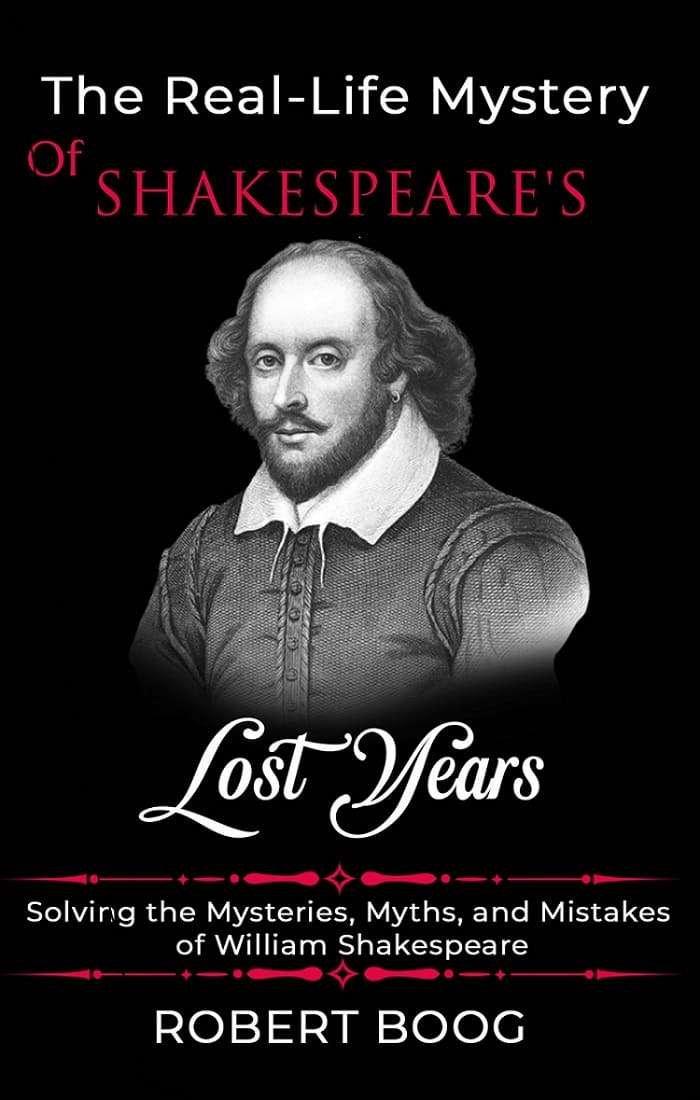 Most of us learned that Henry Wriothesley, the wealthy earl of Southampton was the patron of William Shakespeare. But that story is a myth, claims author Robert Boog who adds, “I used to think of Wriothesley as a weird-looking man in his mid-fifties who had a beard. A beardo, right? Teachers never told us that Wriothesley was only 16 years old. Because Henry had yet to reach his “majority” his legal guardian would have to approve the money he spent.”
Most of us learned that Henry Wriothesley, the wealthy earl of Southampton was the patron of William Shakespeare. But that story is a myth, claims author Robert Boog who adds, “I used to think of Wriothesley as a weird-looking man in his mid-fifties who had a beard. A beardo, right? Teachers never told us that Wriothesley was only 16 years old. Because Henry had yet to reach his “majority” his legal guardian would have to approve the money he spent.”
Boog has now written three books on the authorship of William Shakespeare and writes: “In 1991, scholars unearthed an obscure poem titled Narcissus. It was the first poem dedicated to Henry Wriothesley. This poem, written in Latin, was published in 1589, three years before Shakespeare’s, so most scholars today believe that Shakespeare had read Narcissus and then wrote Venus and Adonis as an answer to it. But why would he do this?
Narcissus tried to embarrass sixteen-year-old Henry Wriothesley. It claimed fifteen-year-old Narcissus had died of self-love. He lacked honour, had little virility and he left no heir. This somewhat described Henry Wriothesley’s situation. Sixteen-year-old Wriothesley had refused to marry 14-year-old Elizabeth Vere because he felt he was too young to get married. His refusal had embarrassed his legal guardian who had arranged the marriage, but Henry stuck to his guns.
Therefore, scholars believed that Wriothesley must have paid William Shakespeare to write a response to Narcissus. For this reason, students were taught of his patronage. But for over 400 years, researchers have found NO proof that Wriothesley met or even knew of William Shakespeare. Plus, since Henry Wriothesley had publicly humiliated his legal guardian, would he have allowed Henry to pay a writer who might further disparage him? No.
Henry Wriothesley’s guardian happened to be the most powerful man in England. As the right-hand-man of Queen Elizabeth, he often used the rack to extract secrets, so most people feared him. Therefore, why would William Shakespeare wish to poke the Bear Grylls by openly disagreeing with him? Remember, the poem Narcissus claimed Henry Wriothesley lacked honour. But William Shakespeare used the word “honour” seven times in his dedication to Venus and Adonis. Living in Stratford upon Avon, ninety miles from London, how would William know if the sixteen-year-old boy truly was honorable? Was the man from Stratford really William Fakespeare?
The Real-Life Mystery of Shakespeare’s Lost Years blends clever observations, common sense, and a squirt of humor to paint an entirely different view of who wrote the works of William Shakespeare. It even explains why the plays and poems were written.
PRAISE FOR “THE REAL-LIFE MYSTERY OF SHAKESPEARE’S LOST YEARS”
“Pardon my zinger but hands down, this was the best non-fiction book I have read in a long time. Maybe the only non-fiction book too.”
“I personally found the subject matter captivating, especially as an English Literature student, but the author’s tone and voice throughout were really the most engaging parts of the book alongside the key mystery of ‘who is/was William Shakespeare?”
“Very interesting. I must admit I was not expecting this book to make me smile or keep me engaged like it did. I couldn’t stop taking the mysterious journey. But I am glad I took up the challenge. It made me put on my detective hat and think about something I thought was a known fact.”
“I was curious about Shakespeare’s lost years but did not know anything about Anne Hathaway’s real name, or Lord Burghley. But everything is logically explained, and it solves the puzzle. I think all students should read it.”
“A relatively short book that packs a big punch. I liked its sense of humor. Agree or disagree, I found it insightful.”
https://www.amazon.co.uk/Real-Life-Mystery-Shakespeares-Lost-Years-ebook/dp/B0BSDYCB4C/
Contact: Chandra Dudley [email protected]



























